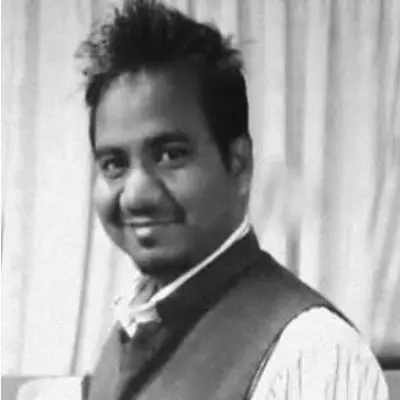Live
- Man held for siphoning Rs 8.14 cr in trading scam
- Don’t pressurise students for fees
- Almonds are a key to faster muscle recovery after exercise: Study
- No govt faced so much criticism than Revanth-led Cong in 11 months: Kavitha
- Balineni signed SECI agreement, says Chevireddy
- Infant kidnapped from Niloufer Hospital rescued, cops arrest 3
- Sunny Leone reflects on challenges and preparations for ‘Shero’
- Hyderabad Saree Festival 2024 kicks off in a grand manner
- Speed up Veligonda project works, CPM urges govt
- 10 career opportunities with a public policy degree
Just In

Five-time Grammy-nominated sitar player and global composer Anoushka Shankar returned to India on December 2 after performing to full houses in Europe, North America, United Kingdom and United Arab Emirates.
Renowned sitarist Anoushka Shankar will perform in the city as part of the nationwide tour of her latest album ‘Land of Gold’, which began on December 2. Ahead of her visit, she speaks about the voice of hope in the album and the significance of crossovers in her music
Five-time Grammy-nominated sitar player and global composer Anoushka Shankar returned to India on December 2 after performing to full houses in Europe, North America, United Kingdom and United Arab Emirates. As part of the six-city tour Anoushka will perform at Shilpakala Vedika in the city on December 11.
This is Anoushka’s fifth visit to India. The 35-year-old, who has a flair for making the sitar speak a number of musical languages, is touring in support of her inspired new album ‘Land of Gold’. The album embraces electronics and cross-genre collaborations, and is Anoushka's fervent response to the humanitarian trauma of displaced people fleeing conflict and poverty. In a statement the sitarist had said, “The central message of 'Land of Gold' is the recognition of the resilience of the human spirit and of our capacity to find the place where enduring hope resides.”
Excerpts:
What are your expectations from the tour, Hyderabad in particular?
I don’t have expectations from life, only hope. I hope to deliver great shows to people and have them feel excited and moved by the experiences we share with them.
What is the concept behind your new album ‘Land of Gold’?
Writing this album coincided with the birth of my second son and I was so troubled with the contrast between my ability to care for my baby and those who were less able to provide security for their children. I felt powerless and unable to help the suffering and injustices of the plight of my fellowmen.
This album really was a constructive way for me to channel my distress, to express and explore the emotional response to the nightmarish trauma I was watching as it unfolded. I believe that art can make a difference and music has the power to speak to the soul.
How is it different from your previous albums?
It’s similar to past albums and different, too. While it’s a crossover like most of my last albums, it’s again very electronic, which I avoided on the last few of records. I focused on taking the sitar out of its comfort zone. The album isn’t exotic in a way that’s often associated with the sitar.
My instrument gets to be wild and angry along with being loving and tender. I worked with amazing co-producers; my husband Joe Wright produced along with me and brought a really cinematic scope to the music. Bjork’s producer Matt Robertson did the electronics. And my co-writer Manu Delago- well, he just has to be heard to be believed.
When you compose a new track what goes through your mind?
It totally depends! I try to connect deeply with the emotion behind a piece of music and play from that place. Often that means there’s no thinking at all, and sometimes there’s a narrative thought process involved.
Do you get nervous before a performance?
Not so much anymore. But sometimes a little!
How do you handle mistakes during a performance?
By thinking creatively! Often a mistake can turn into a new idea that can be developed and used. There’s a jazz joke that says, “if you make a mistake, do it again!”
What’s your take on ‘Electronic Dance Music’ (EDM), which is ruling the roost in India?
This is so funny to me. Just because EDM is now ubiquitous doesn’t mean it hasn’t been around for a long time under different guises, including in India. I’ve been listening to electronic music in various forms since I was 14, and it’s been a big part of my life.
Across my discography it’s also been a big influence on my music. Like the word “indie” which is now bandied, it’s enjoying a wave of more popular and less niche interest in India, and that’s great! Although the irony is that the whole point of the word indie is that it’s niche.
What is the best advice you received from your father?
His example was more important than his words. He always practiced intensely before concerts, and took the time to really focus and centre himself before going onstage. Every single show was important, after decades of performing and thousands of shows. He was never casual about a smaller city for example. That commitment and discipline was amazing.
Tell us about your relationship with George Harrison? Do you have any memories of him in a session with your father?
How can I qualify how much Uncle George meant to me? He was one of my parental figures and I was extremely close to him. We worked together on my father’s album ‘Chants of India’, which I conducted and assisted and he produced. I went on to play at his memorial concert along with many other people he was close to, like Paul McCartney, Ringo Starr and Eric Clapton.

© 2024 Hyderabad Media House Limited/The Hans India. All rights reserved. Powered by hocalwire.com







